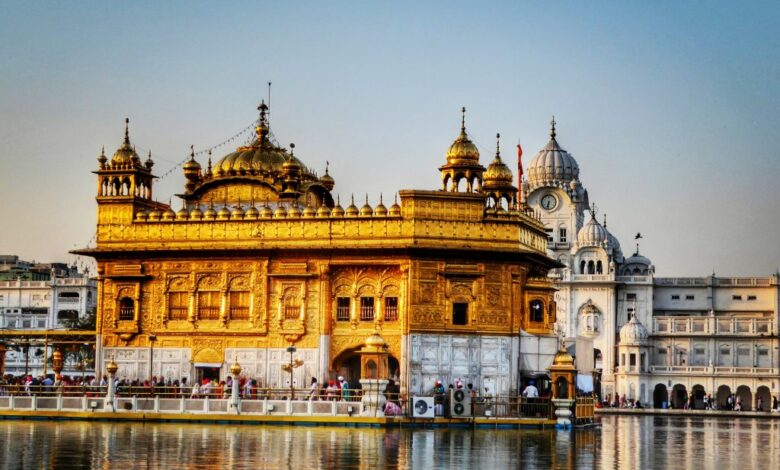Conflicts between Mughals and Sikhs were personal, political in nature and can’t be ascribed to religion

The first four Sikh Gurus continued the tradition of quiet meditation and scholarship. The 5th Guru, Arjun Dev completed the compilation of the Sikh scriptures called Adi Granth or Granth Sahib. To emphasize that the Guru combined both spiritual and worldly leadership in his person, he began to live in an aristocratic style. He erected lofty buildings at Amritsar, wore fine clothes, kept fine horses procured from Central Asia and maintained retainers in attendance. He also started a system of collecting offerings from the Sikhs at the rate of one-tenth of their income.
Emperor Akbar had been deeply impressed with these Sikh Gurus and it is said, visited them at Amritsar. However, a clash began with the imprisonment and death of Guru Arjun by Jehangir on a charge of helping rebel prince Khusrau with money and prayers. His successor Guru Har Govind was also imprisoned for some time, but he was soon set free and developed good relations with Jahangir and accompanied him in his journey to Kashmir just before his death. But he came into clash with Shah Jahan on a hunting incident.
While the Emperor was hunting near Amritsar one of his favorite hawks flew into the Guru’s camp and his refusal to give it up led to a series of clashes. However the matter was hushed up at the intervention of some well-wishers at the court.
A second conflict took place a little later when the Guru’s attempt to build a new city on the river Beas near Jallandhar was objected to.
A third conflict took place when two horses of surpassing beauty and swiftness being brought to the Guru from Central Asia were seized by the Mughal royal officials. A notorious robber Bidhi Chand stole these horses and presented them to the Guru. By this time the Guru had a sizeable following and in the series of skirmishes the Guru acquitted himself well. The Guru was supported for some time by a Muslim Pathan Painda Khan. Ultimately Guru Har Govind retired to the Punjab foothills and was not interfered with.
All these conflicts were of an inconsequential nature and can be ascribed to personal and political factors rather than religion. The Guru’s assuming of a rich lifestyle and being called ‘sacha padsha’ or ture sovereign by his followers does not seem to have been a cause of concern to the rulers because some of the Sufi Saints led a rich life style and were given similar titles by their followers to emphasize their spiritual eminence.










